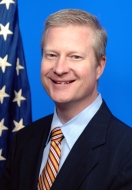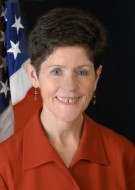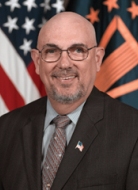Federal Coordinating Council for Comparative Effectiveness Research Membership
| NOTICE: The Federal Coordinating Council was ended by the Affordable Care Act. |
Recovery Act Allocates $1.1 Billion for Comparative Effectiveness Research
The U.S. Department of Health and Human Services on March 19, 2009, announced the members of the Federal Coordinating Council for Comparative Effectiveness Research. Authorized by the American Recovery and Reinvestment Act, the new Council will help coordinate research and guide investments in comparative effectiveness research funded by the Recovery Act. “Comparative effectiveness research can improve care for all Americans and is an important element of President Obama’s health reform plan,” said HHS Spokeswoman Jenny Backus. “President Obama is committed to openness and transparency and the Coordinating Council will host open meetings and a listening session as it begins its important work.” Comparative effectiveness research provides information on the relative strengths and weakness of various medical interventions. Such research will give clinicians and patients valid information to make decisions that will improve the performance of the U.S. health care system The 15 member Council, named today in accordance with a Congressionally-mandate timeline, will assist the agencies of the Federal government, including HHS and the Departments of Veterans Affairs and Defense, as well as others, to coordinate comparative effectiveness and related health services research. The Recovery Act authorized $300 million for the Agency for Healthcare Research and Quality, $400 million for the National Institutes of Health, and $400 million for the Secretary of Health and Human Services to support comparative effectiveness research. The Council will not recommend clinical guidelines for payment, coverage or treatment. The Council will consider the needs of populations served by federal programs and opportunities to build and expand on current investments and priorities. It will also provide input on priorities for the $400 million fund in the Recovery Act that the Secretary will allocate to advance this type of research. Council members represent a diverse set of individuals and agencies; most of its members are clinicians. Representatives on the Council will address the impact on subpopulations. To ensure that all voices are heard, the Council will hold a public listening session on April 14, 2009. Its deliberations and recommendations will be public and transparent, consistent with all Recovery Act investments as well as the President’s commitment to open government. A list of Council members is included below.
HHS
Anne C. Haddix, Ph.D.
Chief Policy Officer, Office of Strategy and Innovation
Centers for Disease Control and Prevention Anne C. Haddix, Ph.D., has served as CDC's Chief Policy Officer since May 2006, where she serves as a principal advisor to the Chief Strategy and Innovation Officer and to the CDC Director on a wide range of health policy issues. Dr. Haddix co-founded and successfully cultivated Prevention Effectiveness as a scientific discipline at CDC, establishing the first set of methodological guidelines for cost-effectiveness analysis of public health interventions. She also helped to create the Prevention Effectiveness Postdoctoral Fellowship program. As a result, there are now more than fifty practicing economists working at CDC across a diverse array of programs. Dr. Haddix is the author or co-author of numerous scientific publications, and editor of Prevention Effectiveness: A Guide to Decision Analysis and Economic Evaluation. Dr. Haddix received her Ph.D. in Agricultural Economics from the University of Georgia. She graduated from California State University Fresno with an M.S. in Agricultural Economics. She received her B.A. in Biology from California State University Fresno. | 
| Thomas B. Valuck, MD, MHSA, JD
Medical Officer and Senior Advisor, Center for Medicare Management
Centers for Medicare & Medicaid Services Dr. Thomas Valuck is Medical Officer and Senior Advisor in the Center for Medicare Management (CMM) at the Centers for Medicare & Medicaid Services (CMS). He advises CMS leadership on policy issues related to Medicare’s payment systems and quality initiatives particularly pay for performance. He earned the 2007 Administrator’s Achievement Award for leadership in implementing Medicare pay-for-performance initiatives. Dr. Valuck has degrees in biological science and medicine from the University of Missouri-Kansas City. He completed clinical training in pediatrics at the Children’s Mercy Hospital in Kansas City, Missouri, and has a Masters degree in health services administration from the University of Kansas. He also attended the Georgetown University Law Center and worked for the White House Council of Economic Advisers as a health policy assistant to Dr. Mark McClellan. Before joining CMS, Dr. Valuck was an associate at the law firm of Latham & Watkins, where he practiced regulatory health law. | 
| Peter Delany, PhD, LCSW-C
Director, Office of Applied Studies, SAMHSA Rear Admiral Peter Delany is the Director of the Office of Applied Studies in the Substance Abuse and Mental Health Services Administration. He provides direction to a diverse office of professionals charged with the collection, analysis, and dissemination of critical public behavioral health data. In this capacity he serves as the lead officer in SAMHSA’s ongoing efforts to expand the use and application of behavioral data in the health care reform effort. RADM Delany received his Baccalaureate Degree in Psychology from the University of Maryland, College Park and his Masters and Doctorate in Social Work from the Catholic University of America. RADM Delany is the recipient of numerous awards and honors including the PHS Outstanding Service Medal, Commendation Medal, Achievement Medal. The National Association of Deans and Directors of Schools of Social Work awarded him the Legacy Leadership Award for his efforts to advance public health research infrastructure. | 
| Carolyn M. Clancy, M.D.
Director, Agency for Healthcare Research and Quality
U.S. Department of Health and Human Services Carolyn M. Clancy, M.D., was appointed Director of the Agency for Healthcare Research and Quality (AHRQ) on February 5, 2003, after serving as Director of AHRQ’s Center for Outcomes and Effectiveness Research. Dr. Clancy is a graduate of Boston College and the University of Massachusetts Medical School. Following clinical training in internal medicine, Dr. Clancy was a Henry J. Kaiser Family Foundation Fellow at the University of Pennsylvania. She holds an academic appointment at George Washington University School of Medicine and serves as Senior Associate Editor, Health Services Research. She is a member of the Institute of Medicine and was elected a Master of the American College of Physicians in 2004. Her major research interests include improving health care quality and patient safety, and reducing disparities in care associated with patients’ race, ethnicity, gender, income, and education. As Director, she launched the first annual reports to the Congress on health care disparities and health care quality. | 
| Deborah Parham Hopson, PhD, RN, FAAN
Associate Administrator, HIV/AIDS Bureau
Health Resources and Services Administration Deborah Parham Hopson is the Associate Administrator of the HIV/AIDS Bureau at the Health Resources and Services Administration (HRSA) in the federal Department of Health and Human Services, where she is responsible for managing over $2.1 billion for programs authorized under the Ryan White HIV/AIDS Treatment Modernization Act of 2006 (Ryan White HIV/AIDS Program). In addition, as part of the Emergency Plan for AIDS Relief, she directs a multi-million dollar global HIV/AIDS program with training, care and treatment activities in Africa, Asia, and the Caribbean. Dr. Parham Hopson received her undergraduate degree in nursing and health from the University of Cincinnati and her Master of Science and Doctor of Philosophy degrees in health policy and administration from the University of North Carolina at Chapel Hill School of Public Health. | 
| David Hunt, M.D.
Chief Medical Officer, Office of the National Coordinator Dr David Hunt serves as Chief Medical Officer at ONC in the Office of Health IT Adoption. Prior to this appointment he was Medical Officer in the Office of Clinical Standards and Quality at CMS. Dr. Hunt received a B.A. in Biochemistry from the University of Rochester and an M.D. from Howard University, where he also completed a general surgery residency and served as a Clinical Assistant Professor of Surgery. He served as Senior Systems Analyst and Software developer of eicd.com by YakiTECHNOLOGIES. Dr. Hunt is a member of the National Medical Association and a Fellow of the American College of Surgeons. | 
| James Scanlon
Acting Assistant Secretary for Planning and Evaluation Jim Scanlon is the Acting Assistant Secretary for Planning and Evaluation and directs all activities of the Office of the Assistant Secretary for Planning and Evaluation in HHS. Since 2005 he has served as the Deputy Assistant Secretary for Planning and Evaluation (Science and Data Policy), where he directs a program of analyses in federal science policy, health data policy, statistics and research methods, national health information policy, and policy research, planning and evaluation activities in HHS. He is also the Executive Director of the HHS Data Council, and serves as the Executive Director of the National Committee on Vital and Health Statistics. Jim Scanlon holds advanced degrees in statistics, measurement and evaluation as well as planning and public policy from the University of Maryland and the George Washington University. | 
| Elizabeth Nabel, M.D.
Director, National Heart, Lung, and Blood Institute
National Institutes of Health Elizabeth G. Nabel, M.D. is Director of the National Heart, Lung, and Blood Institute at the National Institutes of Health, where she oversees an extensive national research portfolio with an annual budget of approximately $3.0 billion to prevent, diagnose, and treat heart, lung, and blood diseases. She received her M.D. at Cornell University Medical College, and completed her residency in internal medicine and a clinical/research fellowship in cardiovascular (CV) medicine at Brigham and Women’s Hospital. She is board-certified in internal medicine and CV diseases, and served as Director of the Division of Cardiology at the University of Michigan School of Medicine. Dr. Nabel joined the NHLBI in 1999 as Scientific Director for Clinical Research, and in 2005 became Director. She is the author of more than 240 publications, is a partner on 17 patents, and currently serves on the Editorial Board of the New England Journal of Medicine. | 
| Garth N. Graham, M.D., M.P.H.
Deputy Assistant Secretary, Office of Minority Health Dr. Garth N. Graham is the Deputy Assistant Secretary for Minority Health in the Office of Minority Health at the Department of Health and Human Services. The Office of Minority Health develops and coordinates Federal health policy that addresses minority health concerns and ensures that Federal, State and local health programs take into account the needs of disadvantaged, racial and ethnic populations. He was previously appointed a White House Fellow and special assistant to former Secretary Tommy G. Thompson at the Department of Health and Human Services. He is currently on the faculty of Harvard Medical School and serves as a visiting scientist at the Harvard School of Public Health. Dr. Graham earned an M.D. from the Yale School of Medicine, where he graduated cum laude. He also earned an M.P.H. from the Yale School of Epidemiology and Public Health with a focus in health policy administration. | 
| Jesse L. Goodman, M.D., M.P.H.
Acting Chief Medical Officer, FDA
Director, Center for Biologics Evaluation and Research, FDA Dr. Goodman is currently Chief Medical Officer (Acting) of the FDA, Office of the Commissioner. Since 2003, he has been Director of FDA’s Center for Biologics Evaluation and Research (CBER), which oversees medical and public health activities, critical to US and global preparedness, concerning the development, evaluation, safety, quality and availability of biologics. A graduate of Harvard, he received his M.D. at Albert Einstein and residency and fellowship training at the Hospital of the University of Pennsylvania and at UCLA (where he was Chief Medical Resident). Prior to joining FDA, he was Professor of Medicine and Chief of Infectious Diseases at the University of Minnesota. He has authored numerous scientific papers and edited “Tick Borne Diseases of Humans”. Dr. Goodman has been elected to the American Society for Clinical Investigation and to the Institute of Medicine of the National Academy of Sciences. He is Board Certified in Internal Medicine, Oncology and Infectious Diseases and serves as Staff Physician and Infectious Diseases Consultant at the National Naval and Walter Reed Army Medical Centers. | 
| Rosaly Correa-de-Araujo, M.D., M.Sc., Ph.D
Acting Deputy Director for Office on Disability/Office of the Secretary
U.S. Department of Health and Human Services Dr. Correa, currently serving as the Acting Deputy Director of the HHS Office of Disability is a cardiovascular pathologist trained at the National Heart, Lung, and Blood Institute, National Institutes of Heath. Prior to this position she served as the Director of the Office of the Americas Region in the Office of Global Health Affairs. Dr. Correa successfully led a Secretarial priority initiative on health diplomacy in Latin America that culminated with the establishment of a Regional Health Care Training Center under the Gorgas Memorial Institute, Ministry of Health of Panama. As the Former Agency for Healthcare Research and Quality (AHRQ) Director of Women’s Health and Gender-Based Research, Dr. Correa expanded the women’s health agenda to encompass a new field of inquiry – gender-based research. As a biomedical and a health services researcher, Dr. Correa has numerous scientific publications in peer-reviewed journals, as well as chapters in pharmacology textbooks, and consumer products. Under the theme “Women, Gender, and Health Care Disparities,” she published the first series of studies systematically analyzing gender across race/ethnicity. | 
| Neera Tanden, J.D.
Counselor
Office of the Secretary, HHS Neera Tanden is currently the Counselor for Health Reform at HHS, where she is working on the President’s health care reform plan and helping formulate the department’s response to reform efforts. She is also working on the Department’s interagency Comparative Effectiveness Subgroup as part of the American Recovery and Reinvestment Act, which is focused on maximizing the effectiveness of the Congress’ $1.1 billion investment in funding. Prior to that she was the Director of Domestic Policy for the Obama Biden Presidential Campaign, where she ran point on the campaign’s major initiative on health care, as well as other domestic issues. Before that, Tanden served as Policy Director for the Hillary Clinton Presidential Campaign where she directed all policy work, ranging from domestic to economic to foreign affairs. She previously served as Senator Clinton's Legislative Director, where she oversaw health care policy, including the Senator’s health care quality legislation and comparative effectiveness proposals. She was formerly Senior Vice President for Domestic Policy at the Center for American Progress, as well as Senior Vice President for Academic Affairs, where she worked on the Center’s proposals for universal health care and health care quality. Tanden received her Bachelor of Science degree at UCLA and received her J.D. from Yale Law School. | 
|
OTHER DEPARTMENTS
Joel Kupersmith, M.D.
Chief Research and Development Officer
Veterans Administration Dr. Kupersmith is the Chief Research and Development Officer of the Veterans Administration. In this position, he directs a $1.6 billion research enterprise. He is a graduate of New York Medical College where he also completed his clinical residency in internal medicine. Subsequently, he completed a cardiology fellowship at Beth Israel Medical Center/Harvard Medical School. He served as Dean of the School of Medicine and Graduate School of Biomedical Sciences, and Vice President for Clinical Affairs at Texas Tech University, as well as CEO of the Faculty Practice. Subsequently, Dr. Kupersmith was a Scholar-in-Residence at both the Institute of Medicine and the Association of American Medical Colleges. Dr. Kupersmith has been on many national and international committees involved in heart disease, and on editorial boards of the American Journal of Medicine and two heart disease journals. Dr. Kupersmith was elected to the Governing Council, Medical School Section of the American Medical Association, was a member of the Association of American Medical Colleges Task Force on Fraud and Abuse, and has been a Site Visit Chair for the Liaison Committee on Medical Education. He is a member of the NIH National Advisory Research Resources Council and the American Society for Clinical Investigation. | 
| Michael Kilpatrick, M.D.
Director of Strategic Communications for the Military Health System
Department of Defense Dr. Michael Kilpatrick is the Director of Strategic Communications for the Military Health System in the Office of the Assistant Secretary of Defense for Health Affairs. He has led and managed the programs affecting deployment health for over a decade and has taken the lead on major communication efforts regarding the overall continuum of care throughout the Military Health System. Dr. Kilpatrick is responsible for developing key messages regarding health issues in the MHS and communicating them to Service members and families, military leaders, care providers, and partnering health organizations. Dr. Kilpatrick earned his bachelors degree from Johns Hopkins University, and his M.D. from the University of New Mexico School of Medicine. He completed his Internal Medicine residency and an Infectious Disease fellowship at the University of California, Irvine. He has co-authored more than 70 peer-reviewed publications on tropical medicine and infectious diseases. Dr. Kilpatrick served in the U.S. Navy from 1974 to 1999. His military awards include the Defense Superior Service Medal, two Legion of Merit awards, three Meritorious Service medals, and the Peruvian Navy Cross. | 
| Ezekiel J. Emanuel, MD, PhD
Special Advisor for Health Policy
Office of Management and Budget Ezekiel J. Emanuel, the Chair of the Clinical Center Department of Bioethics at the National Institutes of Health, is currently serving as a Special Advisor on Health Policy to the Director of the Office of Management and Budget. After completing Amherst College, he received his M.Sc. from Oxford University in Biochemistry. He received his M.D. from Harvard Medical School and his Ph.D. in political philosophy from Harvard University. His dissertation received the Toppan Award for the finest political science dissertation of the year. After completing his internship and residency in internal medicine at Boston's Beth Israel Hospital and his oncology fellowship at the Dana-Farber Cancer Institute, he joined the faculty at the Dana-Farber Cancer Institute. Dr. Emanuel was an Associate Professor at Harvard Medical School before joining the National Institutes of Health. Dr. Emanuel has authored 3 books and co-edited 4. He developed The Medical Directive, a comprehensive living will that has been endorsed by Consumer Reports on Health, the New York Times, Wall Street Journal, and many other publications. He has published widely on the ethics of clinical research, health care reform, international research ethics, end of life care issues, euthanasia, the ethics of managed care, and the physician-patient relationship in the New England Journal of Medicine, The Lancet, JAMA, and many other medical journals. | 
|
|






















